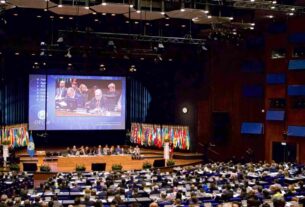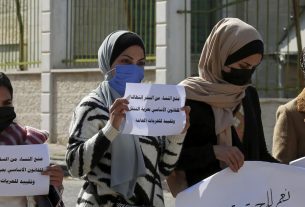The 17 Sustainable Development Goals (SDGs), a global plan adopted by all United Nations member countries in 2015 to improve global well-being and environmental protection, are in an abysmal state. The Covid-19 pandemic and its aftermath are partly to blame, but even before, progress was slow.
Since the SDGs came into force, tens of millions more people are food insecure, school completion rates in many countries have barely budged, and inequality within and between countries is rising. The world has also blown past targets to confront the climate crisis.
Part of the problem is insufficient attention to reforming the economic systems, institutions, and policies driving the very problems the SDGs were meant to address to align with human rights.
But UN member states have an opportunity to take a new approach as they begin the drafting process for a “Pact for the Future,” which will culminate in a September 2024 UN summit intended to improve implementation of the SDGs. The Pact should put human rights at the center.
Rights bodies, including within the UN and national and regional institutions, have developed a rich body of norms, standards, and guidance that should be used to create the conditions for the achievement of SDGs.
In recent years, these efforts have joined those focused on confronting the climate crisis to articulate alternative models – some have called it a new eco-social contract – that enable the realization of rights within planetary boundaries. For example, the UN special rapporteur on extreme poverty and human rights is developing a model for ensuring adequate spending on rights without relying on GDP growth by focusing on the distribution of resources within and between countries.
This vision lines up with a recent call by the UN high commissioner for human rights, Volker Türk, for a human rights economy to “redress root causes and structural barriers to equality, justice, and sustainability.” This month, member states in the UN Human Rights Council will host a meeting to further discuss how to put the human rights economy into practice by integrating rights concerns into much-needed reforms around the international financial architecture, including the international financial institutions, the global debt architecture, and international cooperation on tax and illicit financial flows.
If the “Pact for the Future” is to rescue the SDGs, it should draw upon the blueprint human rights offers for addressing root causes. The world can’t afford for it not to.



